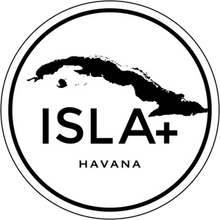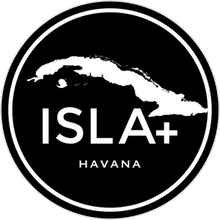Embargo or no, Castro's socialist paradise has quietly become a pharmaceutical powerhouse. (They're still working on the capitalism thing.)

The end of the cold war was cruel to Cuba. The country's trading partners, denied Soviet largesse, dried up. Hard cash ran low. What food the country could grow languished in the fields; Trucks didn't have enough gasoline to bring the crops to the market. And of course there was the US embargo.
What Cubans call “the Special Period” produced one notable success: pharmaceuticals. In the wake of the Soviet collapse, Cuba got so good at making knockoff drugs that a thriving industry took hold. Today the country is the largest medicine exporter in Latin America and has more than 50 nations on its client list. Cuban meds cost far less than their first-world counterparts, and Fidel Castro's government has helped China, Malaysia, India, and Iran set up their own factories: “south-to-south technology transfer.”
Yet at the same time as they were selling generics, the science-heroes of the Cuban Revolution were inventing. Castro made biotechnology one of the building blocks of the economy, and that has opened the door – just a crack – to intellectual property. To date his researchers have been granted more than 100 patents, 26 of them in the US. Now they're setting their sights on the markets of the West.
After the 1959 revolution, Cuba made it a priority to find new ways to care for a poor population; Part of the solution was training doctors and researchers. Cuba currently exports thousands of doctors to impoverished countries and caters to an influx of “health tourists,” mostly rich Africans and Latin Americans seeking cheap, high-quality care.
In 1981, half a dozen Cuban scientists went to Finland to learn to synthesize the virus-fighting protein interferon. Castro sent them with money for a shopping spree. They brought back a lab's worth of equipment and took over a white stucco guesthouse in the Havana suburbs; A decade later, Cuba was the pharmacy of the Soviet bloc and the third world. Most trade took the form of barter, and development experts estimate that by the early '90s the business was worth more than $700 million a year.
“And then, almost from a Monday to a Tuesday,” says Carlos Borroto, vice director of the Cuban Center for Genetic Engineering and Biotechnology (known as CIGB in Spanish), “the Soviet Union collapsed.” Cuba lost all its credit, 80 percent of its foreign trade, and a third of its food imports.
Faced with economic calamity, Castro did something remarkable: He poured hundreds of millions of dollars into pharmaceuticals. No one knows how – Cuba's economy, with its secrecy and centralized structure, defies market analysis. One beneficiary was Concepcion Campa Huergo, president and director general of the Finlay Institute, a vaccine lab in Havana. She developed the world's first meningitis B vaccine, testing it by injecting herself and her children before giving it to volunteers. “I remember one day telling Fidel that we needed a new ultracentrifuge, which costs about $70,000,” Campa says. “After five minutes of listening he said, 'No. You'll need 10.'”
Campa and her colleagues still have to scrim and scrounge. Labs are filled with gear from Europe, Japan, and Brazil. The occasional device from the US has traveled the “long way around” – through so many middlemen (and markups) that it may well have circled the globe. Scientists develop their own reagents, enzymes, tissue cultures, and virus lines. Each institute has its own production facility and conducts clinical trials through the state-run hospital system.
Still, if pharma is to become an economic engine, Cuban researchers acknowledge that they'll have to join the international business community. South-to-south transfers simply don't raise enough cash. That's where things get complicated.
Forty years after it began, Washington's embargo remains a punishing weapon. Not only are US companies banned from doing business with Cuba, but so are their foreign subsidiaries. No freighter that visits a Cuban port may dock in the US for the next six months. For a Cuban product to reach US companies, the makers have to prove a “compelling national interest” to the US Office of Foreign Assets Control. Consolidation in the drug industry has made things worse, says Ismael Clark, president of the Cuban Academy of Sciences. “You'd have a supplier for several years, and suddenly you'd get a letter from the company saying, 'We can't supply you anymore because our firm was bought by an American transnational.'”
The country has taken a few steps towards bridging the gap. The American drug company SmithKline Beecham (now part of a British transnational) got permission to license Campa's meningitis B vaccine in 1999. The terms of the deal are restrictive. SmithKline pays Cuba in products during clinical trials (now in Phase II in Belgium) and in cash only if the drug proves to be viable.
In July, CancerVax, a California-based biotech company, got federal approval to test a Cuban vaccine that stimulates the immune system against lung cancer cells. CancerVax is the first US business to receive such approval. CancerVax staffers saw the research at an international conference, and then spent two years lobbying Capitol Hill and Cuban-American interest groups.
Still, naïveté remains the real obstacle to a Cuban biotech century. Fidel's pharmacists lack slick brochures and golden-tongued sales staff. Foreigners tend to find Cuba extremely bureaucratic, especially when closing a deal.
“They just don't get capitalism,” a diplomat tells me over coffee in Boston. “The elite may watch American TV and read The Wall Street Journal on the Web, so they have a conversational familiarity. But on a fundamental level they don't get it and don't want to get it. “They still think there's something immoral about profit.”
Borroto, of CIGB, remembers talking to colleagues about using patents to protect their expanding market. That was the moment Castro decided to pop into the lab. “What's all this about patents? You're sounding crazy!” he said “We don't like patents, remember?”
Borroto stood his ground. “Even if you're giving medicine to the third world,” he said, “you still need to protect yourself.”
Borroto knew he had to get better at the game. He sent his staff to Canada to get MBAs, to learn the language of capitalism. Yet concepts like venture capital still escape him. “I can't understand how 80 percent of the biotech companies in the world make money without selling any products,” he says. “How do they do this? Hopeness ,” he guesses, using a neologism to stress the absurdity. “They sell hopelessness .”
Asked for an annual report – a basic necessity of international business – Agustin Lage, director of the Center for Molecular Immunology, merely says, “You know, we've actually been meaning to produce one.” Then he smiles and shrugs.
It's like Castro said: They don't really like patents. They like medicine. Cuba's drug pipeline is most interesting for what it lacks: grand-slam moneymakers, cures for baldness or impotence or wrinkles. It's all cancer therapies, AIDS medications, and vaccines against tropical diseases.
That's probably why US and European scientists have a soft spot for their Cuban counterparts. Everywhere north of the Florida Keys, once-magical biotech has become just another expression of venture-driven capitalism. Leave it to the Cubans to make it revolutionary again.
Douglas Starr (dstarr@bu.edu) is codirector of the Center for Science and Medical Journalism at Boston University.
Link: https://www.wired.com/2004/12/cuba/




